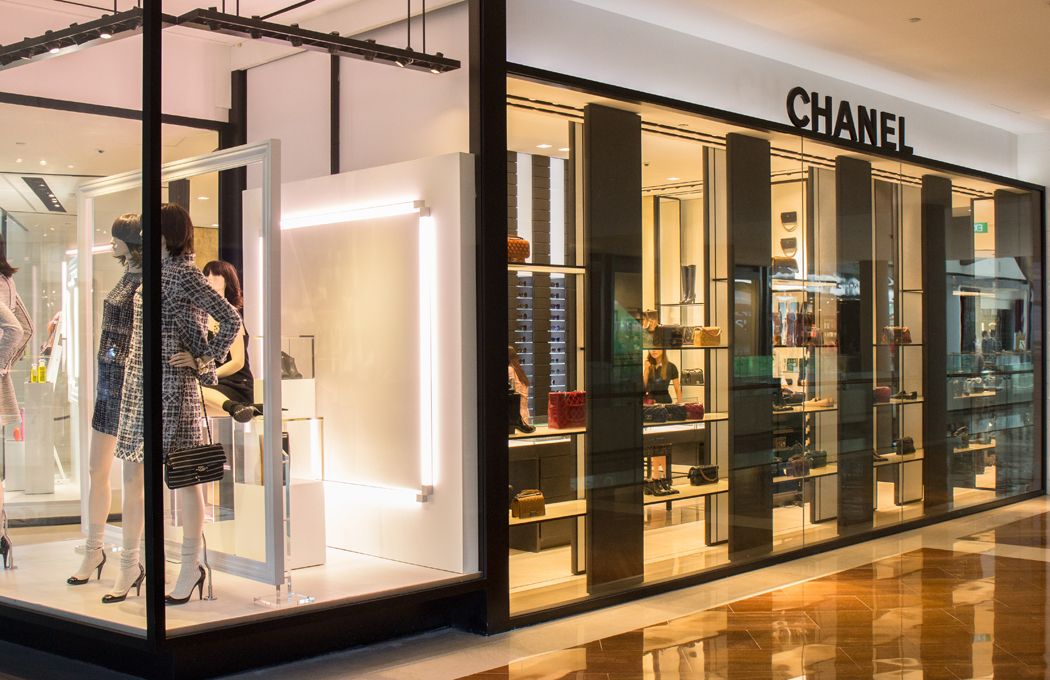
It’s no secret that consumers like to shop online. But even despite the emerging e-commerce market, most luxury brands are refusing to sell products online. Chanel has been notorious for claiming repeatedly they wouldn’t join the digital sector, but earlier this month they finally conceded and announced they would be launching an e-commerce store by the end of 2016. It seems, however, that they’ll be testing the waters before that, and have partnered with Net-A-Porter to sell a limited-edition jewelry collection, Coco’s Crush. But what does the brand’s decision really mean for consumers? And more importantly, what does it mean for the luxury market?

While many brands have embraced technology with open arms, like Burberry and Saint Laurent, others seem content to live in the well-dressed dark ages, offering little more on their site than images, a store locator and, if they’re really forward thinking, perhaps a few cosmetics. In fact before the announcement this month the only thing Chanel had ever sold online was a selection of products from their beauty collection. It’s estimated that about 40 percent of luxury brands don’t sell product online, citing irreplaceable store experience or exclusivity as the reason they avoid the internet. In addition, most brands make their money from licensed goods (i.e. accessories, sunglasses, fragrance) rather than ready-to-wear. “Fashion is about clothing, and clothing you need to see, to feel, to understand,” Bruno Pavlovsky, Chanel’s president of global fashion, told Bloomberg in 2013. He explained that digital initiatives are designed “more to bring the customers to the boutique.”

But it seems the brand has changed their tune. “It’s a multichannel approach,” Pavlovsky told WWD when they announced their decision to join fellow online retailers. “It’s not so much a shift. It’s an evolution to better serve our customers. Some of the customers are able to come into the boutique. Sometimes they don’t want to because they want to go faster and they know exactly what they want, so it should be able to better respond to the customers’ requests. So it’s more e-service than a pure e-commerce approach.”

Like Chanel, other brands have been slowly coming around to the idea of an e-commerce site. In January Fendi announced they would start selling digitally this year, Tom Ford started offering accessories and footwear online this spring and even Louis Vuitton seems to be prepping for ready-to-wear sales with a site expansion late last year. But as online sales are expected to drive 40 percent of projected sales growth between 2013 and 2020, brands will either have to join the digital market or risk the possibility of losing out on almost half their growth over the next five years. Recently, to boost sales and make up for loss of e-commerce growth, luxury brands have been opening stores in untapped markets overseas—most specifically China. But now that these markets are leveling out from their initial boom and even declining, most labels are starting to see the benefits of growing digitally.

According to a report released by Exane BNP Paribas, Burberry is the leading online luxury retailer due to a strong social media presence, quality sites and e-commerce stores in almost every major market. But they’re almost alone in their efforts as most of their contemporaries fall short by offering a limited selection of merchandise, restricting which countries have access to online shops or having no digital presence at all. While most brands with an online store (be it their own outlet or a retailer like Net-A-Porter) offer accessories, bags being the most popular items on offer, they are hesitant when it comes to ready-to-wear, footwear and even perfume—something that could deter them from further growth.

Of course this expansion into online sales won’t happen overnight. Brands notorious for controlling their product, like Chanel, will undoubtedly test the waters slowly, which is likely why the French brand’s e-commerce site has a late 2016 release date. Designers concerned about diluting their exclusiveness and losing their luxury title may be even slower in making the transition. While we still have over a year to wait before Chanel opens their online store, and even longer before sales and growth statistics become available, this could be the catalyst needed for other luxury brands to finally offer up products online.









